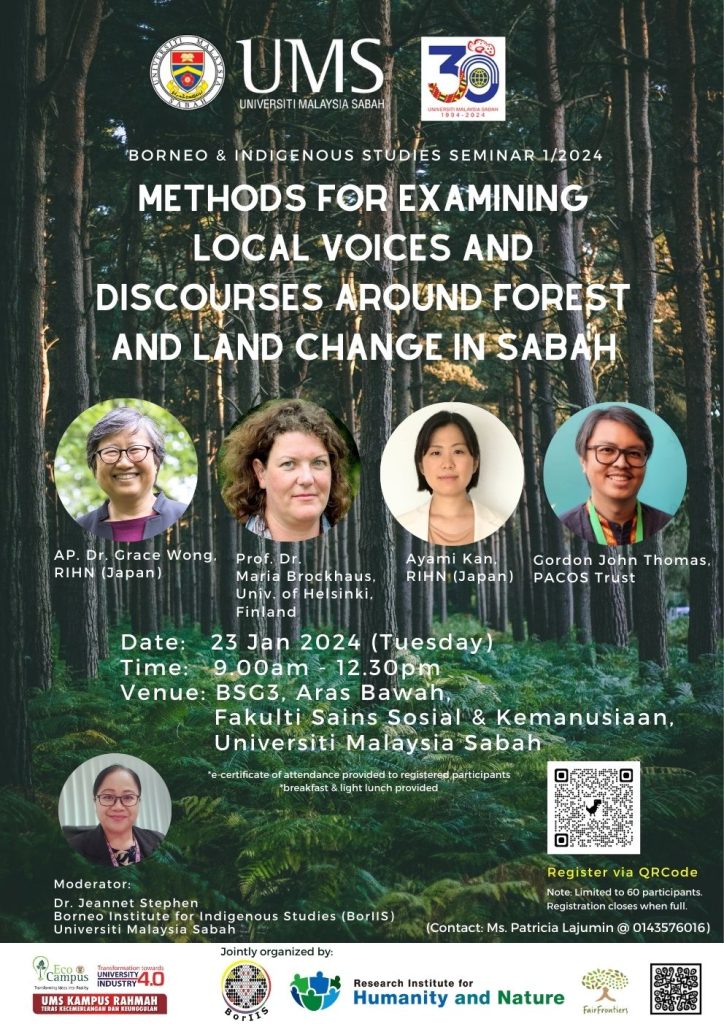A public seminar jointly organised by Borneo Institute for Indigenous Studies (BorIIS), FairFrontiers, and PACOS Trust was held on 23 January 2024. Four talks related to local voices and discourse around forest and land change in Sabah were presented, followed by a discussion with the audience.
History of local contestations around forest change and tree plantation development in Bengkoka Peninsular
Gordon John Thomas
Land contestations in Sabah have a long history, and there are still many ongoing issues related to land rights. In this presentation, Gordon introduced the major issues that communities are facing. One is that there are many uncertainties, including the lack of clear demarcation of land, and the difficulties in determining the boundaries. Competition is also an issue, as land grabbing by outside actors have also led to competition for land between communities and villages. This has sparked conflict between stakeholders, another major issue. Conflict can also happen as a result of difficulties in accessing accurate information, and the lack of channels communities can use to to clarify or (dis)agree with the decisions made in regard to their land. Various approaches/recommendations for addressing these issues was also later discussed in the presentation.
Photovoice as a method to examining power, politics and local agency in the FairFrontiers project
Grace Wong
After introducing the project, including the background context and research objectives, Grace explained the purpose of using photovoice as one method carried out in FairFrontiers. Photovoice is a method where participants take photos of their daily realities, and later discuss and reflect on the issues they are facing through the photos. This process allows participants, some who are often marginalised, to voice their perspectives and engage critically with their experiences. In the context of the project, photovoice is a key method that allows local and indigenous articulations of well-being, as well as discussions on social, cultural, and political connections that are usually less visible.
Infrastructures of inequality: Approaches to discourse and coalition analysis in land and forest policy making
Maria Brockhaus
“Infrastructure” in this context is not limited to buildings, roads, or other physical structures, but also includes the interconnected processes where material, financial and ideational flows contribute to the foundation upon which an economy is built. Examining “Infrastructures of inequality” therefore helps answer the project’s larger question “who benefits from development?” and also “how“. Various methods and approaches for examining these flows, policy influence, and discourse and advocacy coalitions were introduced.
Media-base discourse analysis of Sabah’s Nature Conservation Agreement: a win-win-win deal for whom?
Ayami Kan
A carbon trading proposal for Sabah titled Nature Conservation Agreement (NCA) was secretly signed in October 2021, and has been highly debated in the press since details of the NCA has been publicised. Print media related to the NCA was examined to identify policy coalitions based on actors’ narratives about development and forests. Three coalitions were identified: 1) Local rights defenders; 2) NCA promoters; 3) Process sceptics. Actors for or against the NCA both emphasise the importance of managing forests and local development within Sabah, but closer examination of arguments reveal that coalitions have different visions of who is to be included in decision-making and who will benefit from it.

